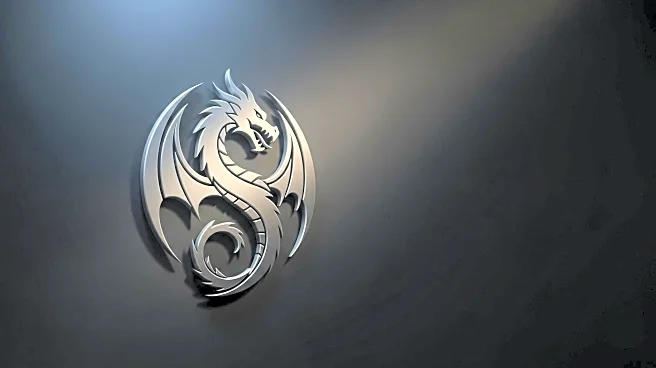What's Happening?
New Line Cinema has announced the development of 'Mortal Kombat 3,' following the delay of 'Mortal Kombat 2' to Summer 2026. Jeremy Slater, known for his work on 'Godzilla x Kong: The New Empire' and 'Marvel's Moon Knight,' has been signed to write the script for the third installment. The announcement was made at New York Comic Con, although details about the plot remain undisclosed. The previous films have been based on the popular video game series, with 'Mortal Kombat 3' potentially exploring themes from the games, such as the merging of realms by the villain Shao Kahn. The second film will feature returning cast members and new additions, including Karl Urban as Johnny Cage.
Why It's Important?
The development of 'Mortal Kombat 3' signifies the ongoing popularity and cultural impact of the Mortal Kombat franchise, which has been a staple in the gaming industry since the 1990s. The film adaptations have expanded the franchise's reach, attracting both fans of the games and new audiences. The continuation of the film series could further solidify the franchise's legacy in entertainment, potentially leading to more cross-media collaborations and merchandise opportunities. The involvement of experienced screenwriters and actors suggests a commitment to maintaining high production values, which could enhance the films' appeal and success.
What's Next?
With 'Mortal Kombat 2' set to release in May 2026, fans can anticipate further developments regarding 'Mortal Kombat 3,' including casting announcements and plot details. The success of the second film will likely influence the direction and scale of the third installment. Additionally, the release of 'Mortal Kombat: Legacy Kollection' on consoles and PC in December will provide fans with a nostalgic experience, potentially increasing interest in the upcoming films. As the franchise continues to evolve, it may explore new storylines and characters, expanding its universe and engaging a broader audience.
Beyond the Headlines
The Mortal Kombat franchise's expansion into film highlights the growing trend of video game adaptations in Hollywood, reflecting the industry's recognition of gaming as a significant cultural force. This trend may lead to more investments in similar projects, bridging the gap between gaming and film. The adaptations also raise questions about the portrayal of violence and fantasy in media, as filmmakers balance staying true to the source material with broader audience appeal. The franchise's success could inspire other game developers to explore cinematic storytelling, potentially leading to innovative cross-media experiences.










